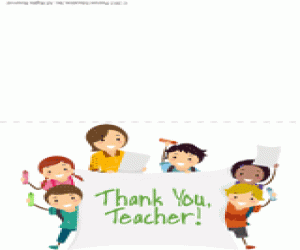by: FE Staff

Be a Star
You could also create a blog where your child can discuss and display his summer learning (articles, pictures, books read, etc.). Family members or teachers can visit the Web page, praising your child's work from a distance and keeping the energy flowing.
Kids' artwork or writing can even be submitted to LD Online to be featured on the website, which makes kids feel great.

And the Envelope, Please?
For older kids, put some bigger ticket items in envelopes, but also put some smaller prizes, like "5 more minutes!" coupons that kids can use at any time during the school year (for TV shows, video games, talking on the phone, or going on Facebook). Kids can pick a prize out of a bag after completing a learning activity.

Job Skills Search
You might also go to the Bureau of Labor Statistics Career Information site and find out what skills it takes to be an architect or a veterinarian, or to work in any other field she's interested in. Help your child turn developing these skills into learning goals for the summer.
If you know or can find someone who actually does the job that your child picks, ask if that person would be willing to help increase your child's motivation. A shopkeeper, an athlete, or a stockbroker who is willing to check in with your child periodically about her progress with summer work makes the task more important and more real. Consider asking your own colleague, relative, or friend if he or she would be willing to be an "e-mentor" who would check in with your child via email over the summer.

Work for Rewards
If your child says something like: "You're nuts if you think I'm going to do that — this is my vacation!?" then point out that professionals work throughout the year in order to perform at their best. Artists paint, musicians play, teachers prepare lessons and materials during the summer. Tell your child what you are personally working on this summer and try to engage him in parallel learning.
Kids with learning difficulties are often so used to working to earn "pay-offs" that they get turned off by this process. If they know that they'll be able to "have a life" in the summer, they may be more motivated to engage in these work-for-rewards systems you set up.

Work in Advance
- A middle-school or high-school student could have a lot of fun locating websites and bookmarking topics to be addressed in the first part of next year.
- Creating outlines for long-term assignments can be a time-saver later on.
- Pre-reading chapters of books or underlining key words can help pave the way to success.
- You or a tutor can sign a form indicating that your child read certain books during the summer, thereby earning your child precious free time or study time in the coming year.
- Your younger child can create props for a puppet show or skit that would demonstrate his understanding of a book he read or a topic he studied over the summer. This integrates the arts into summer learning and raises the fun factor.
Keep in mind that doing this kind of "up front" work has to be considered valid in the fall, or the plan will fail and your child will be disappointed and rightfully angry. Make sure you have the full agreement of next year's teachers and/or guidance counselors. When class gets underway, your child shouldn't have more work, but should have more time to do the work that needs to be done at the beginning of the year. The point of this strategy is to help kids get a much stronger start in the fall and balance the workload between the summer and the school year.



